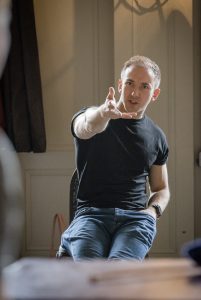
One morning last week My Loved One strode (yes, strode – not shambled, shuffled or trudged) into my office. He’d been to Beckenham, on one of his single target excursions to take a package to the Post Office. Now, in Beckenham the Post Office is within WH Smiths where, on his own initiative he had stopped off and bought a couple of packet of the plastic propelling pencils we both like. It’s an old joke that neither of us can ever find one because they’re so gregarious that they like to hold meetings in my handbag or violin case. “I’m rationing you to two of these new ones” said MLO with an assertive twinkle. “If I let you have any more you’ll only eat them”. It was, for a few moments as if I had my husband back – the man who could run a business, manage files, administer the household as well as being someone I could, and often did, lean on heavily to keep everything running smoothly. Ms Alzheimer’s was nowhere to be seen. She was banished. There we were, just the two of us – grinning at each other. Equal partners,
Of course it didn’t last. This disease doesn’t go away. There is no such thing as “remission”. If you’ve got it, you’ve got it. A few days later we came in from a reasonably constructive, congenial afternoon’s gardening to find an alarming, growing, puddle on the kitchen floor. MLO did a lot of handwringing and negative muttering while I got down (a long way down) to mopping it up and phoning our plumber son for help. Eventually, flat on my stomach on a very wet floor, getting soggier by the minute – having pulled all the kick panels off – phone glued to my ear, I ascertained that the waste pipe had separated from the outlet under the sink. An hour later and, with verbal guidance from the family plumber, I had effected a temporary fix. Shall I add plumbing to my ever growing CV? Maybe not. The reason I mention this incident here is that throughout the damp drama MLO simply hovered, looked anxious and vaguely relieved that someone was dealing with it. Ms A was definitely in the kitchen with a vengeance. I hope she got horribly wet feet. And a nasty chill.
Every day at least one person kindly asks me how MLO is. Most people are terrifically supportive and sympathetic, by the way. There’s not a lot they can do in practice but the warmth helps. I just answer “Well up and down. Good days and bad days .. you know? You just have to take each day as it comes”. They then commend me for coping with it all so positively. As if I have a choice. The pencils followed by the plumbing are a good couple of illustrations of just how yo-yo like, life with Ms A really is. You have to go with the flow and hope it won’t be literally across the kitchen floor.
Four months after the April meeting at which we were given the devastating diagnosis, MLO has just had a follow up appointment with the consultant. At last he now has some medication. There were delays because of a couple of minor medical issues, now successfully negotiated. The drug is called Memantine – in case you’re interested in the technicalities – and he’s on an escalating dose over four weeks. It’s helpfully categorised as an “anti-Alzheimer’s medicine” (and there was I thinking it was a cold cure – silly me) and is supposed to work on the receptors in the brain which deal with memory. “Some people find it useful” said the consultant cautiously. Well, it’s early days and this week he’s on only a quarter of the target dose but the lack of side effects thus far is encouraging. And maybe, just maybe, it will help to lessen Ms A’s grip a little as least in the short term
A few more pencil days and rather fewer plumbing days would be good. But I’m not holding my breath. Hope has to be tempered with realism when you have Ms A in residence.







